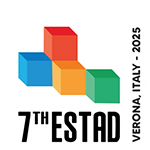Speaker
Description
Thin Slab Casting and Rolling processes, such as the Arvedi Endless Strip Production (Arvedi ESP) process, are proven technologies to significantly reduce energy consumption and direct CO2 emission in continuous casting and hot rolling. Due to the increasing use of Electric Arc Furnaces and the use of also low-grade steel scrap, a higher intake of undesired tramp elements, such as Cu or Sn, is expected. In continuous casting and hot rolling, those unwanted tramp elements may lead to hot shortness and intergranular crack formation. Arvedi ESP aims to suppress those negative effects by increasing casting speed and accelerating cooling of the thin slab, as well as by direct rolling without using a tunnel furnace.
The influence of tramp elements and the cooling strategy on the intergranular crack formation of steels are experimentally investigated by the in-situ materials characterization by bending (IMC-B) test. The IMC-B test is a three-point bending test at elevated temperatures, allowing the experimental simulation on directly cast samples under different boundary conditions, such as cooling strategy or bending temperature. The conventional continuous casting process and the Arvedi ESP process are simulated on a TRIP980 steel and a Cu- and Sn-contaminated TRIP980 steel.
Results clearly indicate that the addition of Cu and Sn has a detrimental effect on the intergranular crack formation for conventional continuous casting conditions, especially in the temperature range of 900-1000 °C. On the contrary, accelerated cooling and the shorter process time of Arvedi ESP result in significantly better performance regarding crack formation, even in Cu- and Sn-contaminated samples. Nevertheless, it is evident that bending temperatures above 1000 °C decrease crack sensitivity in both processes. Summing up, the behavior of TRIP steels during continuous casting is significantly influenced by elevated Cu and Sn contents, but faster cooling and shorter process times seem beneficial.
